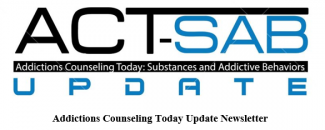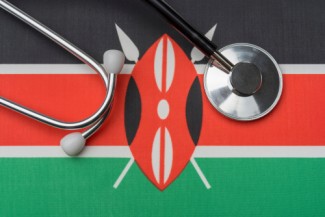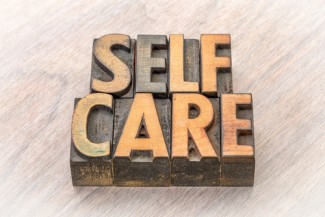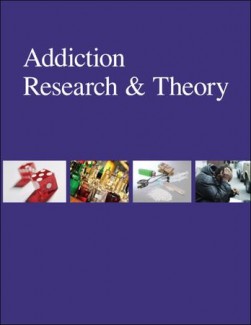Search
Sex and Gender Effects in Recovery From Alcohol Use Disorder
The current article provides a summary of biopsychosocial gender differences in alcohol use disorder (AUD), then reviews existing literature on gender differences in treatment access, retention, outcomes, and longer-term recovery. Among...
The COVID-19 pandemic and its impact on substance use: Implications for prevention and treatment
Abstract
The COVID-19 pandemic has brought major challenges to healthcare systems and public health policies globally, as it requires novel treatment and prevention strategies to adapt for the impact of the pandemic. Individuals with...
Experiences of Clinicians Transitioning to Telemedicine
The COVID-19 pandemic has forced many practitioners to shift their practice online, using telemedicine to treat Opioid Use Disorder. This has allowed for the continuity of essential care whilst adhering to the social distancing guidelines...
بیک وقت توجہ کی کمی / ہائپر ایکٹیویٹی ڈس آرڈر اور مادہ کے استعمال کی خرابی کے ساتھ نوعمروں کی اسکریننگ ، تشخیص اور علاج کے لئے بین الاقوامی اتفاق رائے بیان
A Review of the Substance Use Disorder Treatment and Prevention Systems in Kenya
Researchers predict that harm from substance use and rates of substance use disorders in sub-Saharan Africa will increase significantly in the next 30 years.
In order to have a well-functioning health system that works in harmony, the...
Prices, Alcohol Use Initiation and Heavy Episodic Drinking among Chilean Youth
Research suggests that early initiation of alcohol use is a risk factor for multiple problems later in life, including heavy episodic drinking and alcohol use disorders.
Prevention scientists are particularly interested in understanding...
Cochrane Tobacco Addiction: Key Review Summaries
Below are two-page summaries of research carried out by the Cochrane Tobacco Addiction group.
Combined pharmacotherapy and behavioural interventions for smoking cessation
A Review of the Public Sector Substance Use Disorder Treatment and Prevention Systems in Kenya
Abstract
Background
The burden of substance use disorders in sub-Saharan Africa has been projected to increase by an estimated 130% by 2050. Despite this, little is known about the substance use disorder treatment and prevention systems...
Discussing Alcohol Use with the GP
A General Practitioner (GP) is often the first point of contact for people struggling with alcohol related issues. These doctors must be trained to detect problematic drinking as well as have the confidence and skills to have open...
The Relationship Between Alcohol-related Hospital Admission and Specialist Alcohol Treatment Provision in England
In March 2012 the Health and Social Care Act (HSCA) was approved, resulting in the commissioning responsibility of specialist drug and alcohol service transferring from the National Health Service (NHS) to local authorities in England.
Thi...
Barriers, Facilitators, and Disparities in Retention for Adolescents in Treatment for Substance Use Disorders: A Qualitative Study with Treatment Providers
Abstract
Background
Retention in substance use treatment is one of the strongest predictors of improved outcomes among adolescents, making retention an important goal of treatment. We examined treatment providers’ perspectives on barriers...
Substance Use and SUDs in LGBTQ* Populations
People who identify as lesbian, gay, bisexual, transgender, or questioning (LGBTQ) often face social stigma, discrimination, and other challenges not encountered by people who identify as heterosexual. They also face a greater risk of...
COVID-19 and Substance Use Disorders: Recommendations for a Comprehensive Healthcare Response
The coronavirus pandemic has become a sudden public health issue that has affected all communities around the world. Everyone has had to make adjustments to their lifestyles in a united effort to slow the spread of disease and prevent as...
The Self-Care Matrix: A Unifying Framework for Self-Care
We are seeing a global rise in long-term noncommunicable diseases, linked with our inability to protect our own wellbeing.
The World Health Organization defines self-care as:
"the ability of individuals, families and communities to...
Self‐Care for the Prevention and Management of Disease: A Statement for Healthcare Professionals
Due to the nature of their work, health care professionals frequently experience long hours, stress, burnout and compassion fatigue. If left unaddressed, these issues can lead to increased risks of mental and physical health problems.
One...
Adolescent Brain Development, Substance Use, and Psychotherapeutic Change
Adolescence involves dramatic biologic, psychological, and behavioural changes.
Adolescents respond, learn and explore their environment, forming new relationships and further developing their identity.
It is often a time where...
First Alcohol Treatment Institutions in Today's Czech Republic and Slovak Republic
Abstract
Objective:
Drawing on qualitative analysis of selected historical documents, the paper seeks to provide a definition of the general characteristics of the first institutional alcohol treatment facilities in today's Czech Republic...
Outreach to People Who Survive Opioid Overdose
Often it takes a critical moment, such as when someone survives an overdose, to motivate behavioural change.
It is particularly important that at these times people have access to the appropriate treatment.
The objective of this study was...
Trajectories of psychological distress during recovery from polysubstance use disorder
Abstract
Introduction: Polysubstance use is a prevalent substance use pattern with adverse effects on psychological distress and diminished treatment outcomes. Although polysubstance use often dominates clinical practice, the trajectories...
Share the Knowledge: ISSUP members can post in the Knowledge Share – Sign in or become a member









